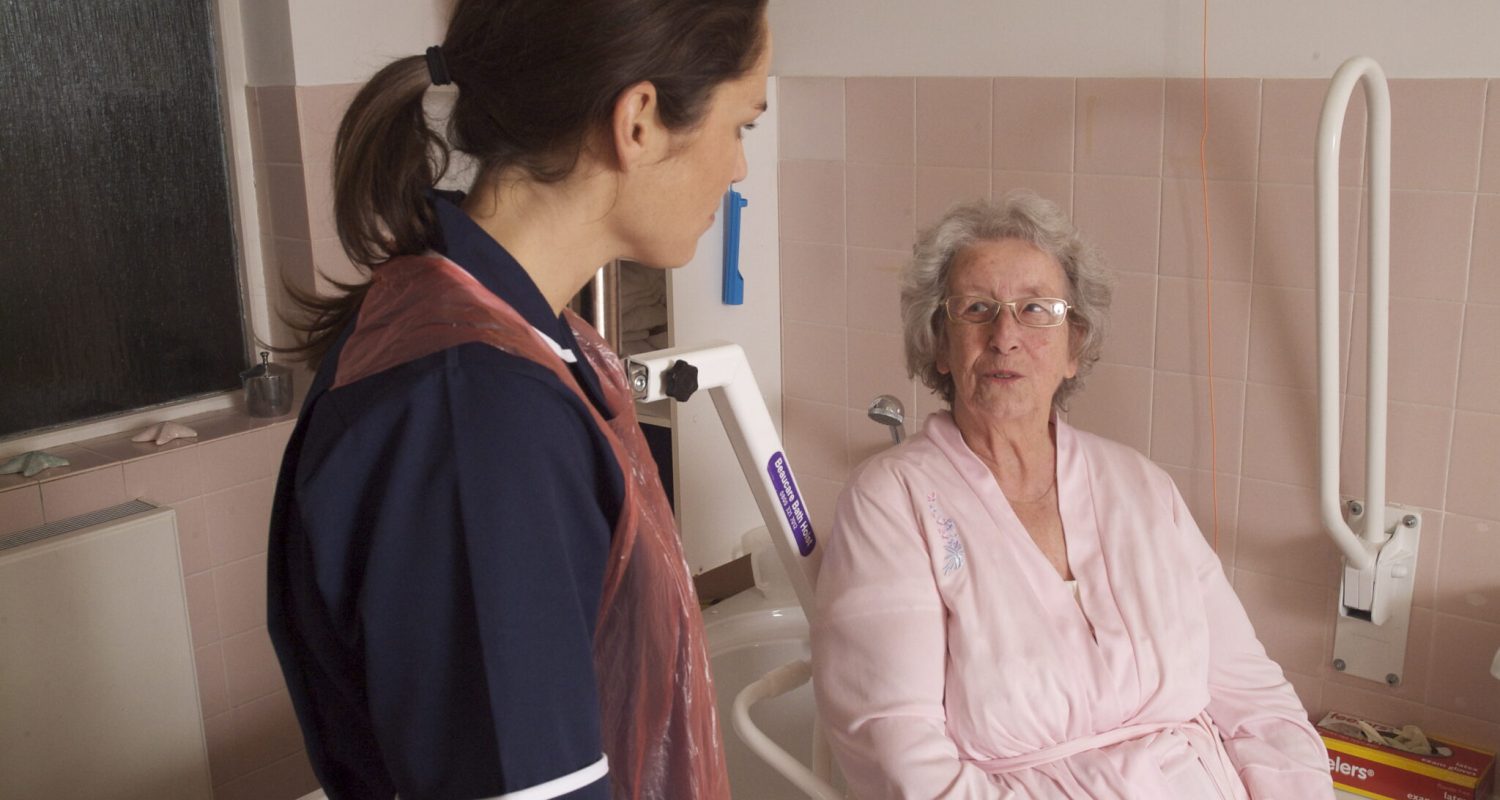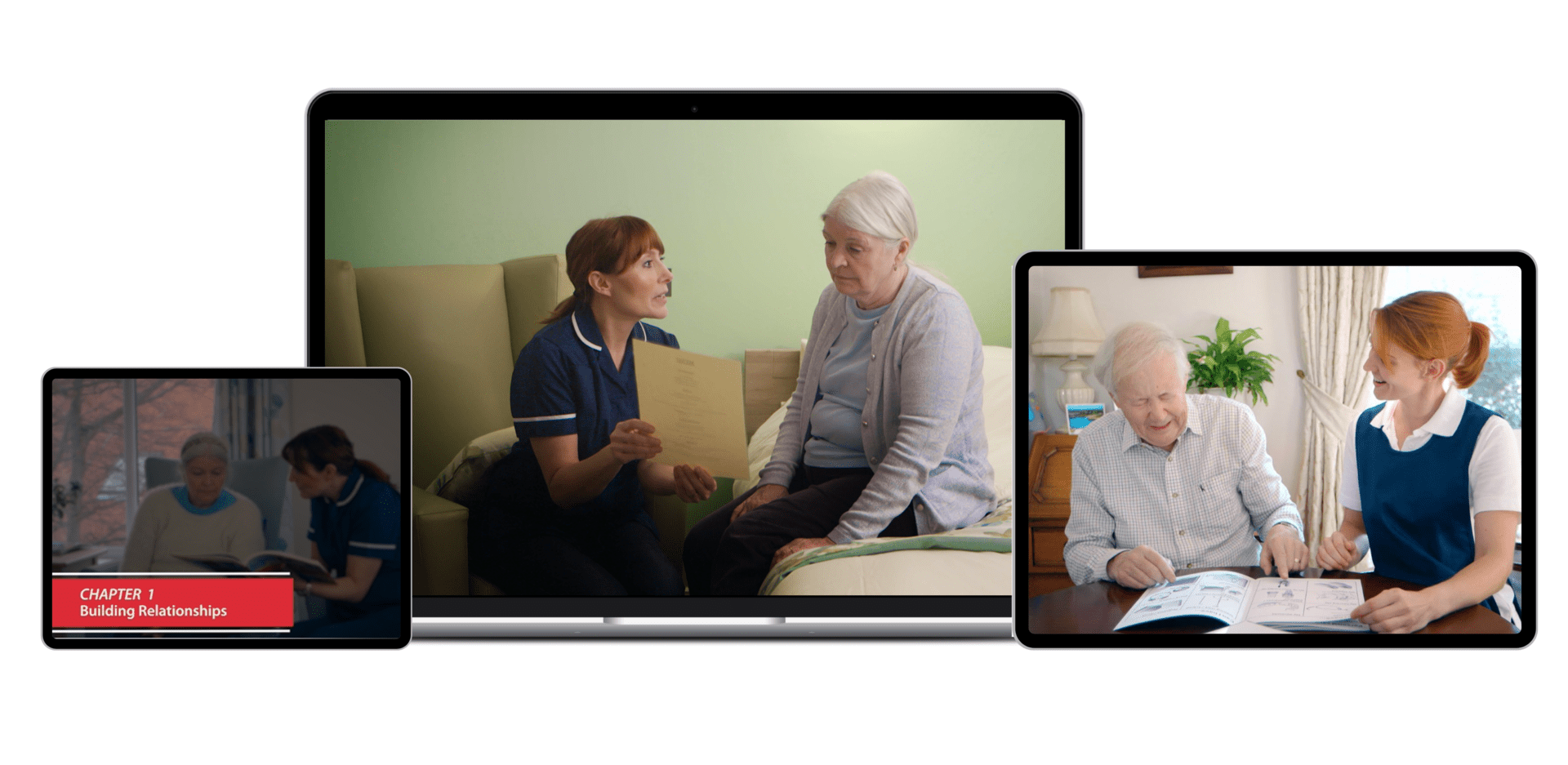Recognising that each individual has unique needs, preferences and abilities is essential in a care setting. While this might seem like common sense, it is not yet a universal standard in health and social care.
Traditionally, health care has often been provided ‘to’ or ‘for’ people rather than ‘with’ them. Care systems have typically adhered to standardised routines and practices, requiring patients and service users to adapt instead of receiving care tailored to their individual needs.
However, the value of a person-centred approach is now being increasingly recognised. For many health and social care workers, engaging meaningfully with individuals and communities aligns with their intrinsic motivation to provide high-quality care.
This shift towards person-centred care is reflected in Standard Five of the Care Certificate, which emphasises its importance for new staff in health and social care roles. Although this standard is not a legal requirement across all settings, the principles of person-centred care are becoming more widely adopted and appreciated.
At CareTutor, we offer specific courses designed to help caregivers implement person-centred care effectively. Our “Principles of Person-Centred Care” course provides in-depth knowledge and practical skills for delivering tailored care. Additionally, our “Domiciliary Home Care Course” focuses on applying these principles in home care settings.
But what exactly is person-centred care? And how can caregivers implement person-centred approaches in health care settings?
What is Person-Centred Care?
Person-centred care is about placing the individual receiving care at the centre of the care process. It’s about having their best interests at heart and doing what you can to maintain or improve their well being while considering their desires, needs and values to guide clinical decisions.
This approach emphasises involving both the individual and their family in their care journey, rather than solely relying on health and social care professionals to make decisions. It empowers individuals to develop the knowledge, skills and confidence necessary to actively manage and make informed choices about their own care and treatment.
The Four Principles of Person-Centred Care
Despite ongoing discussions about person-centred care and its growing significance in the health and social care sector, there appears to be no universally accepted definition of the term.
This ambiguity stems from the personalised and dynamic nature of person-centred care, where its application varies depending on the unique needs, circumstances and preferences of each individual receiving care. What matters most in one person’s care journey may not hold the same, or any, significance for another. These priorities can also shift over time as the individual’s needs evolve.
Rather than attempting to provide a singular definition, the Health Foundation, an independent charity dedicated to enhancing health care in the UK, has identified four principles of person-centred care. These principles serve as guiding factors to consider when delivering any form of care and support within a care setting.
The four principles of person-centred care are:
- Affording people dignity, compassion and respect.
- Offering coordinated care, support or treatment.
- Offering personalised care, support or treatment.
- Supporting people to recognise and develop their own strengths and abilities to enable them to live an independent and fulfilling life.
Why is Person-Centred Care So Important?
There is growing evidence that approaches to person-centred care, such as shared decision making and self-management support, can improve a range of factors, including patient experience, care quality and health outcomes.
Respect for Individual Autonomy
Person-centred care emphasises the participation of patients in making decisions about their own health care. Rather than being passive recipients, individuals are actively engaged in discussing and deciding the best course of action for their health. This collaboration between patients and health care professionals gives individuals a sense of control, leading to greater satisfaction with the care they receive.
When care is tailored to the specific needs and desires of each patient, it becomes more appropriate and personalised. By focusing on the individual’s unique circumstances and involving them in the care process, person-centred care ensures that patients feel genuinely cared for and respected.
Improved Health Outcomes
When patients are actively involved in their care decisions, they are more likely to adhere to treatment plans and follow medical advice. Additionally, patients who feel their values and preferences are respected are more motivated to take an active role in their health care, resulting in better self-care and lifestyle choices.
Person-centred care also empowers patients by providing them with the knowledge and skills needed to manage their health conditions effectively. Educated and informed patients are better equipped to make decisions that positively impact their health.
Enhanced Patient and Caregiver Satisfaction
When caregivers are empowered to customise care according to each individual’s needs, they can deliver more effective and appropriate support. This personalised approach significantly improves the patient’s care experience, fostering a sense of satisfaction with the care they receive. Furthermore, caregivers themselves often experience greater satisfaction with the quality of care they are able to provide.
In line with the Health Foundation’s principle of care, patient-centred approaches prioritise the provision of coordinated care, support or treatment. This principle highlights the importance of ensuring seamless transitions and integrated support across various health care settings and providers. By emphasising coordinated care, patient-centred approaches aim to enhance continuity and comprehensiveness in the care experience, ultimately resulting in heightened satisfaction with the care experience.
Promotion of Trust and Communication
When caregivers prioritise person-centred care, it builds trust and fosters open communication between patients and health care providers. By placing the individual’s needs and preferences at the forefront, caregivers create an environment where patients feel heard, valued and respected, leading to stronger therapeutic relationships.
In such an environment, patients are more likely to share essential information about their health, symptoms and concerns. This open dialogue not only strengthens the connection between patients and health care providers but also aids in more accurate diagnoses and the implementation of effective treatment plans. As a result, patient-centred care not only encourages trust and communication but also enhances the overall quality and effectiveness of health care delivery.
How to Provide Person-Centred Care
Implementing person-centred care in health and social care settings requires professionals to prioritise effective communication, empathy and active listening. By genuinely understanding and responding to the needs and preferences of each individual they support, caregivers can ensure that their approach is tailored to the person’s unique circumstances.
The Values That Support Person-Centred Care
There are eight values supporting person-centred care, which are foundational for safe, effective and high-quality care. These values are:
- Respect – Involving the person being cared for in any decision-making process, acknowledging and respecting their values, needs and preferences.
- Independence – Encouraging the people being cared for to do things for themselves, even if it’s just a small task. Promoting independence empowers individuals to feel in-charge of their own lives and increases their self-value.
- Individuality – Acknowledging and respecting individuality by recognising and responding to each person in a way that is acceptable and meaningful to them, avoiding a “one-size-fits-all” approach.
- Privacy – Respecting individuals’ control over how personal information is used and shared, as well as ensuring privacy, especially during personal care.
- Partnership – Collaborating with individuals regarding their care options, including them in the decision-making process, identifying their needs and what’s important to them and figuring out their goals and how to achieve them together.
- Choice – Supporting individuals in making their own decisions about care and treatment, and providing them with the necessary information to do so.
- Dignity – Showing respect and value for each individual, supporting their independence and helping them to feel dignified. For example:
- Giving the individual space and time to do things at their own pace.
- Providing privacy during intimate care tasks.
- Being respectful when helping with personal hygiene tasks.
- Offering people choices over their care options and asking about their preferences for care.
- Rights – Upholding individuals’ rights, including the right to say no and make choices about their life, provided that their safety is not compromised.
How CareTutor Can Help
At CareTutor, we believe that starting a caregiver’s training journey with a person-centred approach is essential for achieving positive outcomes for both patients and caregivers. Working in health and social care can be incredibly rewarding, but only if the patient’s well being comes first.
That’s why, at CareTutor, we help to make the delivery of person-centred care simple for care providers. Through our high-quality, cost-effective video-based eLearning courses, we cover the entire spectrum of care home, home care and childcare settings management. Our courses are designed to empower caregivers, driving outstanding person-centred care and ultimately improving the lives of those receiving care.
With over 20 years of experience in training within the care sector, and as the only video-based training provider in the UK endorsed through the Skills for Care eLearning framework, we understand that high-quality care begins with high-quality training.
Contact us today to discover how our courses can equip your staff with the skills essential for your organisation’s success.

